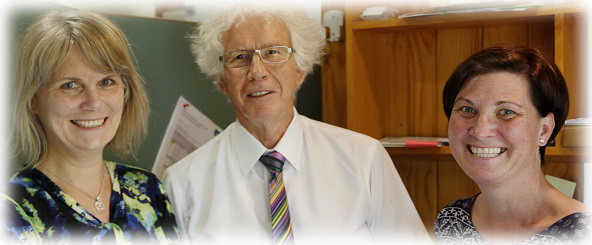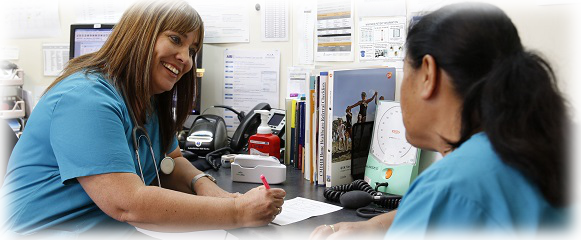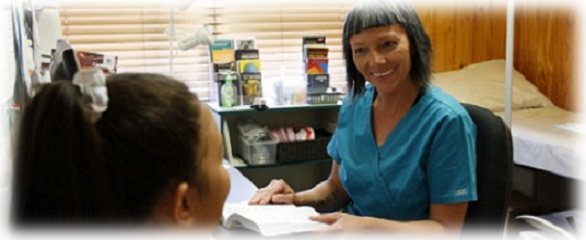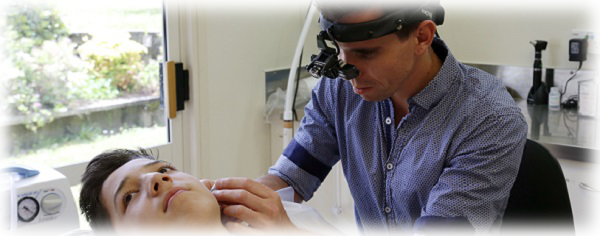February 2014
Welcome again to the Millhouse Community and other readers,
One year has ended and another begun bringing changes and new opportunities for us all. I hope 2014 has begun well and there have been times to rest, reflect and enjoy fun moments with friends and family.
I've been surprised with the number of summer respiratory colds and chest infections which have increased with school recommencing.
Measles, a contagious viral infection which begins with a running nose, sore red eyes,
dry cough and spreading rash is here in the Howick & Pakuranga community. The Ministry of Health are advising those who haven't been immunised, born after 1969 and have not had two MMR vaccinations to consider being re-vaccinated. Make an appointment with the Practice Nurse to have a FREE immunisation.
Learn more about this...
Millhouse News
NEW – AT-RISK INDIVIDUAL PROGRAMME (ARP) - ending of CCM & Care Plus
Counties Manukau District Health Board (DHB) will be rolling out the new AT-RISK PROGRAMME in general practices shortly. Its aim is to be more flexible than the existing chronic care programmes, and will target those with significant medical illness by providing greater intensive services to improve health. Patients on the existing CCM and Care Plus will continue initially but involvement will be reviewed in consultation with your doctor. The DHB has yet to complete the final details of the AT-RISK PROGRAMME.
The CCM depression programme is not affected by this change.
Staff Changes
We welcome Practice Nurse Ruth Cranwell to our medical team. Ruth has special interests in women's health and care of cancer patients. She will also be giving oversight in diabetes care, by organising screening for those at greatest risk, and supporting the newly-diagnosed and patients struggling to improve their blood sugar control.
Dr Stephanie will be resuming part-time medical practice in April and we will notify her patients of the start date and her appointment hours; their baby Olivia is doing very well.
Cervical Smears and Well-Woman's examination
Our practice nurses are available by appointment for cervical smear and well woman's examination for a consultation fee less than that charged for seeing a doctor; make an appointment to see them through Reception.
Learn more about this...
Remember E-appointments
This is an easy and convenient way to book an appointment on line at www.millhousemedical.co.nz. allowing you to select your doctor and an appointment time.
You can book for a family member on line using your password but it will be in your name so leave a message on the appointment screen saying who it is for and inform reception on arrival. Don't hesitate to contact us if you are having problems with e-appointments and we will investigate promptly.
Learn more about this...
Patient Satisfaction Survey
In the past we have used a written survey to identify areas of patient satisfaction or concern, a requirement of our accreditation process. This year we are migrating to a web-based survey using our patient database and website. We will survey a proportion of the patient list at a time; some of you will receive an email invitation to participate in March 2014. Be assured this survey software is both secure and anonymous, unless you choose to identify yourself by email address. You must use the link to access the survey, which does have an expiry date. We look forward to receiving your feedback.
The Healthy Brain and Gluten
After reading a couple of spy thrillers over the holiday break, I opened neurologist Dr David Perlmutter's latest book 'Grain Brain: the surprising truth about wheat, carbs and sugar - your brain's silent killers'.
Perlmutter writes "I believe that the shift in our diet that has occurred over the past century - from high fat, low carb to today's low fat, high carb diet, fundamentally consisting of grains and other damaging carbohydrates - is the origin of many modern scourges linked to the brain, including chronic headaches, insomnia, anxiety, depression, epilepsy, movement disorders, schizophrenia, attention deficit hyperactivity disorder(ADHA), and those senior moments that quite likely herald serious cognitive decline and full blown, irreversible, untreatable and incurable brain disease."
These are big claims with which I agree, though doctors have been slow to accept that food is more than just calories - carbs, protein and fat - and that diet can influence the expression of our genes (epigenetic influence) by either improving health or leading to disease.
aThere is much interest in gluten at present and Google reports that information searches by New Zealanders show it is in the top three with 'depression' and 'diabetes'
.Every month I hear stories of improved wellbeing after individuals have adopted a low-carbohydrate diet, with the avoidance of refined sugars, and elimination of gluten. Last week I was amazed to read an account published in the Journal of Neurology of a 75-year-old man diagnosed with Parkinson Disease (PD) who had suffered for one year with 'difficulty in walking, instability, and fatigability.' Brain SPECT scanning revealed low dopamine levels, a hallmark of PD, but blood and gastrointestinal investigations showed evidence he also suffered from Coeliac Disease. After three months on a gluten-free diet his symptoms had nearly resolved and he continued to improve throughout the next year
.This was a reminder to me and my colleagues to consider performing a gluten-sensitivity test on all patients suffering from brain diseases, including Parkinson Disease.
1 in 100 people have Coeliac Disease and probably 1 in every 3 are Gluten-Intolerant.
Your Brain
Weighs three pounds,
Has one hundred thousand miles of blood vessels,
Contains more connections than there are stars in the Milky Way,
Is the fattiest organ in your body,
and
Could be suffering this very minute without you having a clue."
Dr David Perlmutter
'Grain Brain' discusses the increasing incidence of gluten-related illness and its adverse effect on health, and the controversial effect of cholesterol on brain function. The authors also examine the consequences of consuming a diet rich in refined carbohydrate and starches (especially sugar drinks and fruit juices), which leads to rising blood glucose adversely affecting the brain and other organs. More glucose means more insulin and increasing fat deposition (obesity, inflammation and hormonal disturbances). Insulin becomes less effective (insulin resistance), pre- or latent-diabetes occurs and finally the full blown diabetic condition develops.
In other newsletters (September 2012, November 2012) I have discussed how raised glucose levels caramelise or bake (in what doctors refer to as glycation or glycosylation) protein molecules in the cell's outer lining (membrane) and the interior, interfering with cell structure and function leading to inflammation, degeneration and ageing.
The book ends with practical advice on strategies to improve brain function; especially diet, sleep and exercise.
The Healthy Brain and Exercise
In an earlier newsletter (November 2012) I listed the powerful effects exercise has on the immune system to improve health.
Exercise also stimulates the genes that influence how long we live by turning on 'Brain Derived Neurotropic Factor (BDNF), a nerve growth hormone which acts on the brain and peripheral nervous system supporting the survival, growth and development of new neurons. The majority of our brain cells are formed before birth but some areas of the adult brain retain the ability to form new neurons. BDNF is particularly active in the hippocampus and the front areas of the cortical brain which support learning, memory and higher thinking. BDNF is also produced with exercise in the skeletal muscle, helping to strength and repair muscle tissue.
Question:
What is going to make you smarter and less prone to brain disease?
A. Solving a brain teaser.
B. Taking a walk.
Recent experiments with mice and rats bred intentionally to become marathon runners have demonstrated increased levels of BDNF and other growth factors, brains that have twice as many neurons in the hippocampus (concerned with short and long term movement and navigation) and improved cognitive (ability to think and understand) skills compared with sedentary animals.
Dr David Raichlen, anthropologist at the University of Arizona, believes that physical activity may have helped to make early humans smarter. The more athletic and active survived, as with the lab mice, and passed along physiological characteristics that improved their endurance, including elevated levels of BDNF. Eventually, these early athletes had enough BDNF coursing through their bodies that some could migrate from the muscles to the brain, where it nudged the growth of brain tissue.
Will exercise help our ageing brain?
In 2011, Dr Kirk Erickson and his colleagues studied 120 elderly men and women who either undertook a regular walking exercise or a stretching programme. After one year they were reassessed and only the walkers showed an increase (average 2% increase) in the brain hippocampus and higher levels of BNDF. However the control group of stretchers lost brain volume, and didn't perform well on cognitive testing.
A year later, the effect of performing daily exercise on preventing dementia was published. 716 individuals with an average age of 82 years were monitored for exercise and non-exercise activity by wearing an 'actigraph' continually for ten days, sometime during the trial period that spanned four years. The study found that people in the bottom 10 percent of daily physical activity were more than twice as likely (2.3 times) to develop Alzheimer's disease as those in the top 10 percent of daily activity. They also showed that those in the lowest 10 percent of intense physical activity were almost three times (2.8 times) as likely to develop Alzheimer's disease as people in the top percent of the intensity of physical activity.
(So the answer to the question above is B: taking a walk.)
Innate antioxidant production
We are encouraged to eat high antioxidant foods (dark-coloured vegetables and fruits) and sometimes take supplements to quench the free radical damage caused by such things as infection, inflammation and the aging process.
In 2010, research revealed that when free radicals damage the cell, a specific protein called
Nrf2 is produced; this substance triggers genes that produce a vast array of natural antioxidant molecules as well as other actions that protect against ongoing destructive processes. Physical exercise and fish oils are powerful stimulants of Nrf2 production.
Exercise, then, fuels our natural antioxidant supply, enhances the immune system, has potent anti-inflammatory action, stimulates brain growth, dramatically improves diabetes and has an antidepressant effect.
Give exercise a go. At the very least, do something, but then consider performing more intense regular exercise as your body allows, and involve your children, parents, friends and the family dog.
ghYours in good healt
Dr Richard J Coleman
References:
Di Lazzaro et al: Dramatic improvement of parkinsonian symptoms after gluten-free diet introduction in a patient with silent celiac disease in J Neurol. 2014 Feb; 261(2):443-5.)
Raichlen and Polk: Linking brains and brawn: exercise and the evolution of human neurobiology in Proc Biol Sci. 2013 Jan 7; 280)
Erickson et al: Exercise training increases size of hippocampus and improves memory in PNAS 108(7): 3017-22, 2011)
Erickson et al: The aging hippocampus: interactions between exercise, depression, and BDNF, in Neuroscientist Feb 2012 vol. 18 no. 1 (82-97)
In this issue...
- New Year Greetings
- Measles Warning
- New - At Risk Individual Programme
- Staff Changes
- Woman's Health
- E-booking
- Coming - Online Patient Survey
This month Dr Ric writes about our brain and how to keep it healthy







